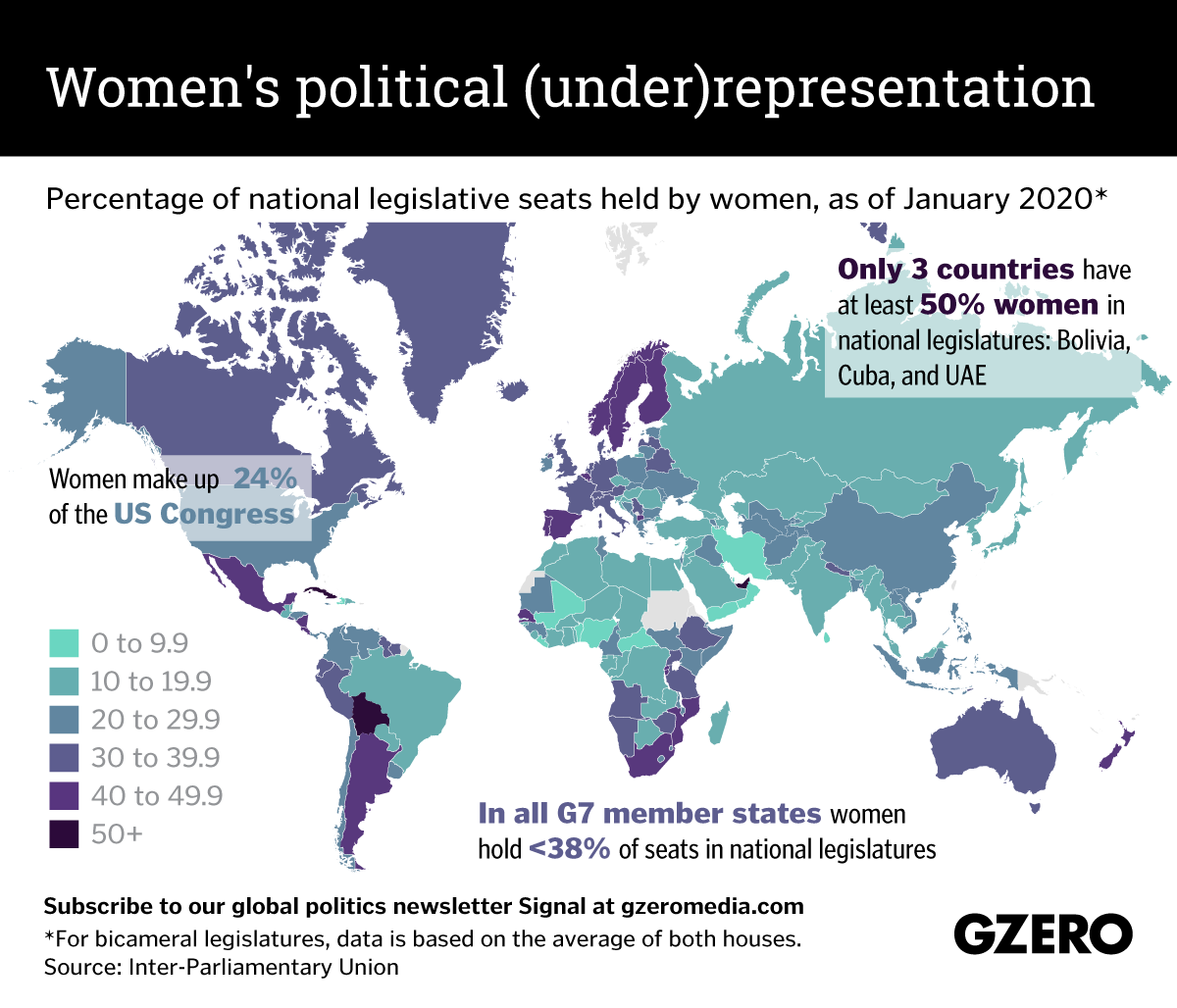The Graphic Truth: Women's political (under)representation
March 03, 2020
March is International Women's History month and there's something you should know: although women account for more than half the human population, the overwhelming majority of policymakers and political leaders in the world's governments are men. In fact, there are just three countries on earth where women make up more than 50 percent of the national legislature. Only one G7 country – Germany – currently has an elected female leader. While some countries have introduced controversial gender quotas at various stages in the electoral process in order to increase female participation in politics, there's lots of progress still to be made. Here's a look at the number of women in national legislatures around the world, as of January 2020.
